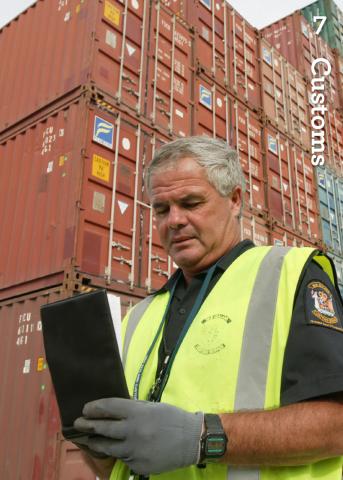By New Zealand Customs
The New Zealand Customs Service is responsible for protecting New Zealand’s border, ensuring secure and efficient trade and travel, and collecting revenue for the government. All the information you need is on our website, www.customs.govt.nz.
You can also call us on 0800 4 CUSTOMS (0800 428 786) or email feedback@customs.govt.nz
The Working Tariff Document of New Zealand
The Working Tariff Document of New Zealand classifies all international trade goods and import duty rates, and outlines concession categories that reduce or waive duty. It includes the Excise and Excise-equivalent Duties Table, which classifies goods such as alcoholic beverages, tobacco products, and motor spirits, and prescribes the rates of excise or excise-equivalent duty to be paid when such goods are imported or manufactured in New Zealand.
If unsure, a tariff classification ruling can be obtained through Customs for a fee.
Preferential tariffs
Under New Zealand’s free trade agreements, preferential tariffs may apply to goods imported from specific countries if certain requirements are met. Preferential duty rates should be claimed when the import entry is lodged with Customs.
The rules and workings can be quite complex. Unless a company has an employee who has been issued a declarant code to do so, all commercial imports and exports must be dealt with through a customs broker, agent or freight forwarder.
Tariff concessions
Goods may be free from duty by way of a tariff concession. Concessions on classes of goods are located in Part II (Concessions) of The Tariff of New Zealand. Concessions which apply to specific tariff chapters, headings, or items can be found in the Consolidated List of Approvals Relating to Part II of the Tariff of New Zealand.
Tariff concessions are generally approved for goods where no suitable alternative is produced or manufactured locally in New Zealand. Your customs broker should know when an exception is possible. Customs manages the application and approvals of new tariff concessions.
Lodging Entries
Customs processes imports and exports electronically through the Trade Single Window website, direct connection to Customs’ system or a third party service provider. Anyone making a submission through TSW needs to be a registered user. If you are lodging anything that grants clearance to goods you must have a declarant code. If you are only lodging a report for the movement of goods you will need a User code which will give very limited access.
Electronic Lodgements to move goods or report to Customs and MPI
Electronic Cargo Information (ECI) has been replaced by Inward Cargo Reports, Outward Cargo Reports, and Cargo Report Export (ICR, OCR, CRE). The main purpose is to report the movement of goods or to clear low value consignments in a timely manner.
This is an extract of the chapter. You can buy a print copy of the handbook here or a digital copy here


